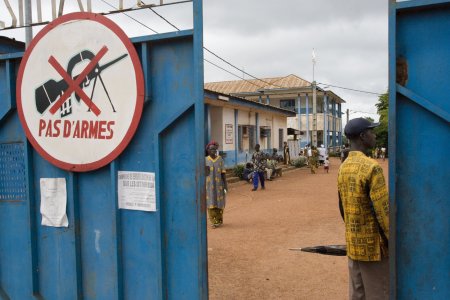 Carl De Keyzer
Analysis
Carl De Keyzer
Analysis
04/28/2004
Fabrice Weissman
Using the example of Liberia, Fabrice Weissman examines the public statements of NGOs and their positions with regard to denunciation and/or calls for international intervention.
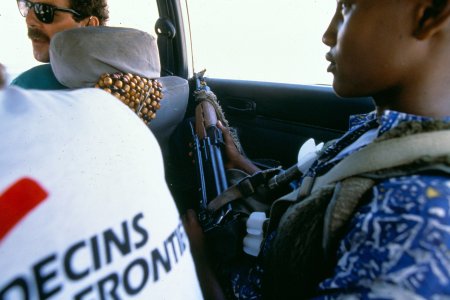 Keith Bernstein
Opinion
Keith Bernstein
Opinion
08/16/2004
Fabrice Weissman
Fabrice Weissman reminds us that while the clarity of the humanitarian emblem is no guarantee of absolute safety, it is nevertheless an essential prerequisite to it.
 Opinion
Opinion
03/01/2009
Rony Brauman
Humanitarian law was designed as a normative framework, not as an indictment. With this in mind, Rony Brauman tries to define what constitutes a human shield.
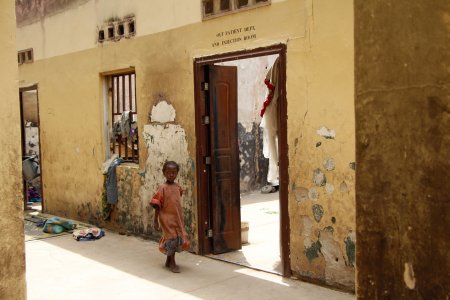 Benoit Finck
Analysis
Benoit Finck
Analysis
07/25/2016
Rony Brauman
Rony Brauman focuses on the humanitarian environment and practices in war, in order to try to understand and analyze its political and ethical stakes. Starting with the creation of the Red Cross at the end of the XIXth century, he then focused on the contemporary postcolonial period, switching between various scales and reporting on contradictory points of view and issues.
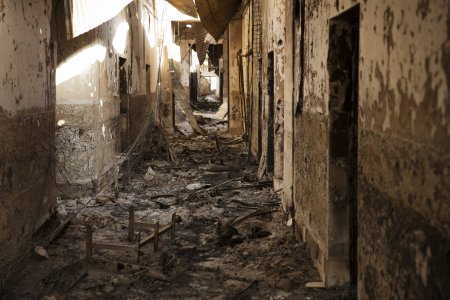 Victor J. Blue
Opinion
Victor J. Blue
Opinion
10/06/2015
Bertrand Taithe
This post was published as a reaction to the attack on the MSF hospital in Kunduz, Afghanistan, that took place on October 3rd, 2015.
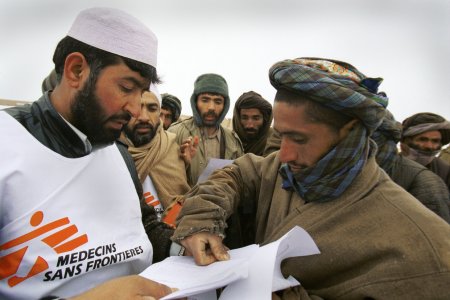 Tim Dirven
Cahier
Tim Dirven
Cahier
04/01/2008
Judith Soussan
To embark upon a study of this theme is to enter a field strewn with contradictory representations linked to a highly sensitive issue – the limits of our responsibility – that has generated endless disagreements and debates on our “identity” and the existence or nonexistence of a role for MSF “beyond care”.
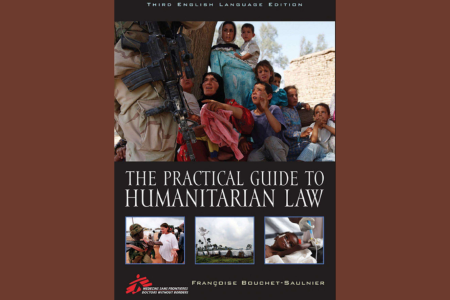 Book
Book
01/01/2006
Françoise Bouchet-Saulnier
Definitions are often the first step toward granting or denying a person's rights. Now in thoroughly revised and updated edition, the Guide provides precise meaning and content for terms such as terrorism, refugee, genocide, and intervention concepts.
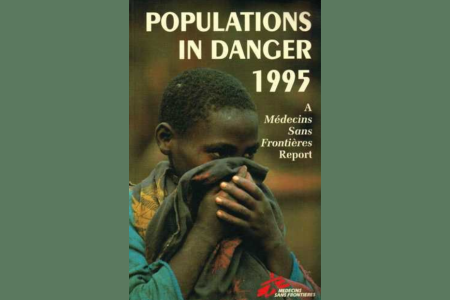 Book
Book
11/01/1995
François Jean
« Never again »: in the wake of the second World War, the terror caused by the Holocaust led the community of states to condemn genocide as a crime and to create a new international organization, the United Nations. And yet, half a century later, the international community did nothing to prevent the first undeniable genocide since that of the Jews: it let the massacre of the Rwandan Tutsis and merely sent humanitarian aid, even though it was nearly over.
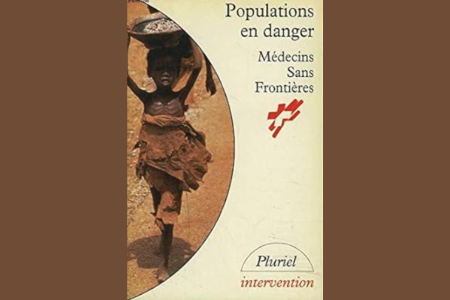 MSF-Crash
Book
MSF-Crash
Book
12/01/1992
François Jean
In the world today entire populations are at immediate risk of death from either famine, war, epidemics or displacement. The people of Southern Sudan, Somalia, the former Yugoslavia, Mozambique, Peru, Sri Lanka, Nagorno-Karabakh, as well as the Tuaregs, the Kurds and Burma's Moslems are those who face the most serious threats.
 Carl De Keyzer
Analysis
Carl De Keyzer
Analysis







